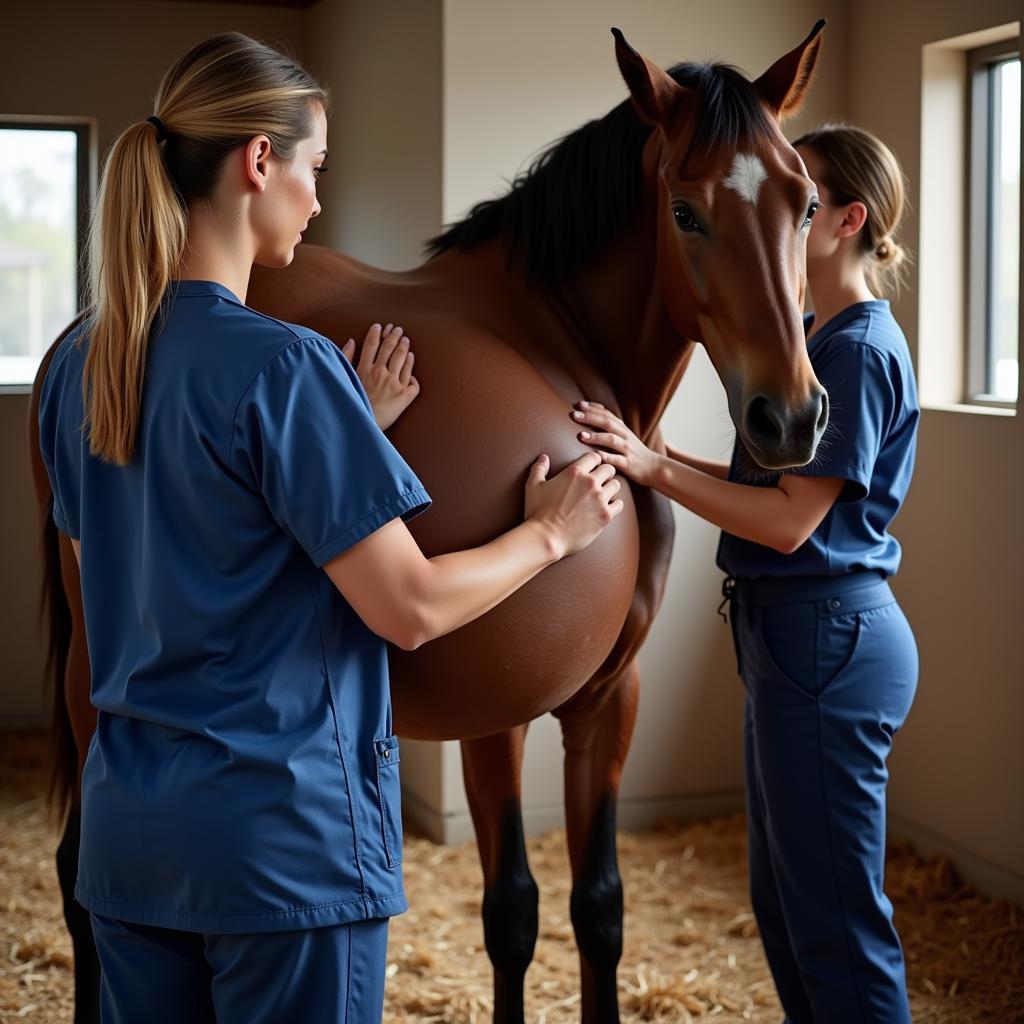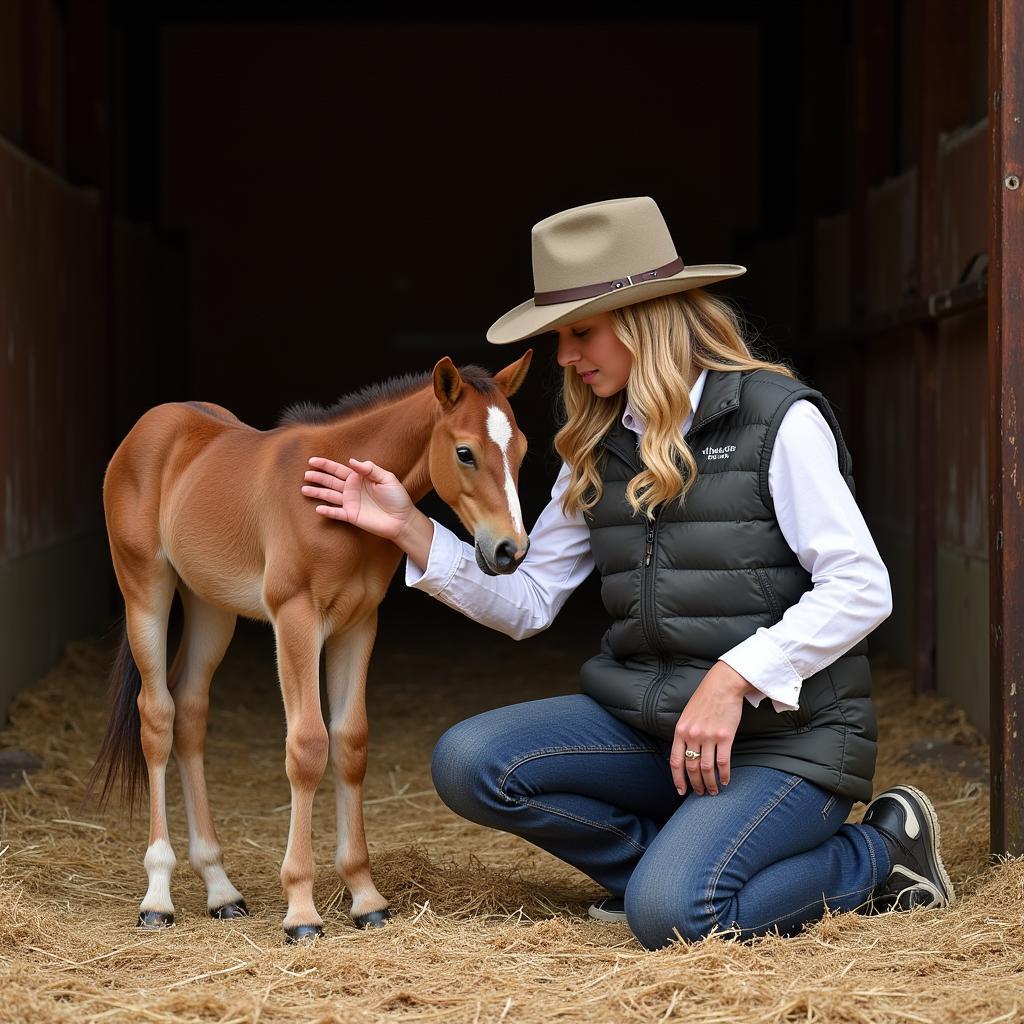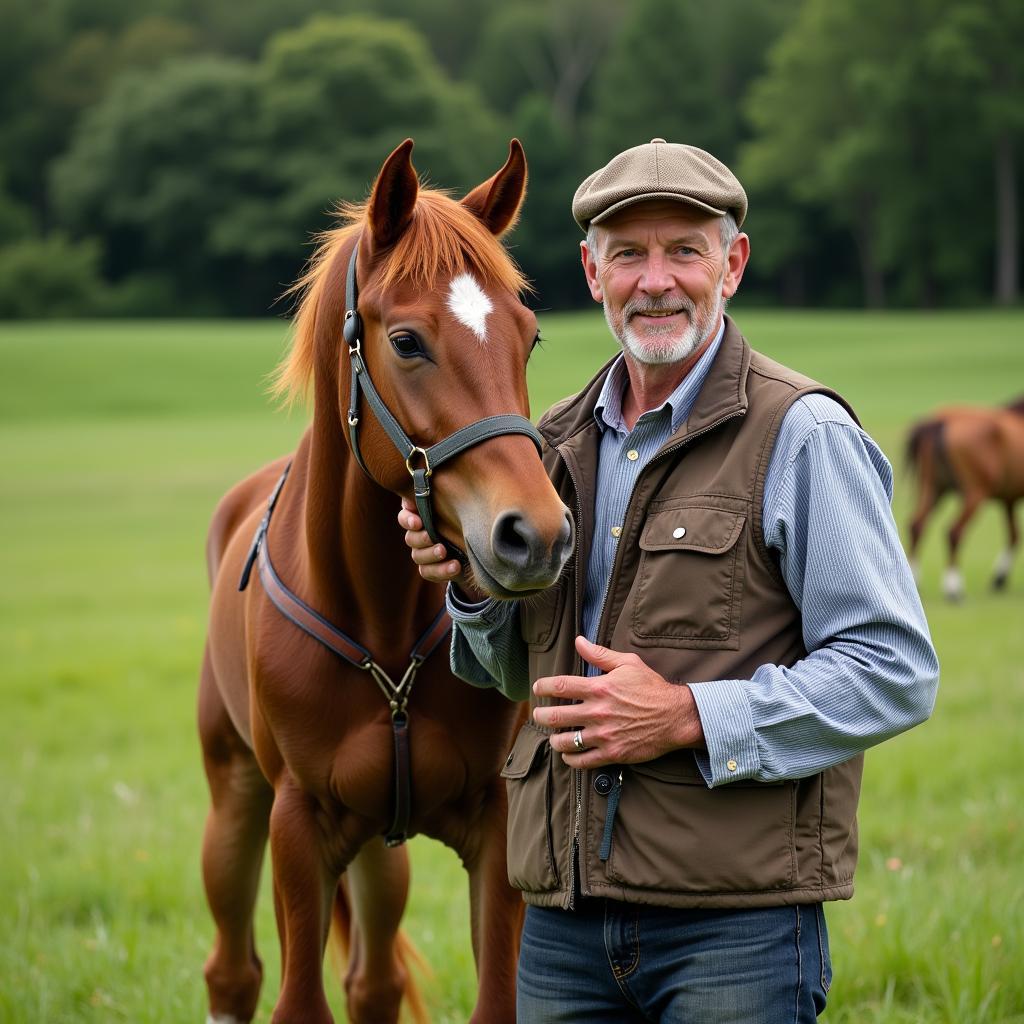The role of a horse breeder extends far beyond simply pairing mares and stallions. It’s a multifaceted profession demanding a unique blend of scientific knowledge, hands-on experience, and an unwavering passion for horses. If you’re captivated by the idea of ushering new life into the equine world and shaping future generations of these majestic creatures, a deep dive into the Horse Breeder Job Description is essential.
Navigating the Responsibilities of a Horse Breeder
A horse breeder’s responsibilities are as diverse as the breeds they work with. This career path intertwines equine expertise with business acumen, demanding proficiency in various areas:
1. Mastering the Art and Science of Breeding:
-
Selecting Ideal Breeding Pairs: Horse breeders meticulously evaluate pedigrees, conformation, temperament, and performance records to select mares and stallions with complementary traits. This meticulous approach aims to produce offspring that inherit desirable characteristics, enhancing bloodlines and potentially achieving breed standards.
-
Orchestrating the Breeding Process: Understanding equine reproductive cycles is paramount. Horse breeders manage breeding schedules, whether through live cover or artificial insemination, ensuring optimal timing for successful conception.
-
Providing Pre-natal and Post-natal Care: A breeder’s role extends beyond conception. They provide expert care for pregnant mares, ensuring proper nutrition, exercise, and veterinary attention throughout gestation. Once foals are born, breeders are instrumental in ensuring their health, development, and early training.
 Veterinarian examining a pregnant mare
Veterinarian examining a pregnant mare
2. Beyond Breeding: The Holistic Approach
-
Record Keeping & Pedigree Management: Maintaining accurate records of pedigrees, breeding dates, health histories, and offspring performance is crucial. This meticulous documentation is vital for making informed breeding decisions and adds significant value to the lineage of the horses produced.
-
Facility Management & Horse Care: Providing a safe and healthy environment for horses is non-negotiable. Horse breeders ensure clean stalls, adequate pasture, appropriate fencing, and access to fresh water. Their responsibilities also encompass daily care, including feeding, grooming, and exercise.
-
Marketing & Sales: Successful breeders often engage in marketing their breeding programs and horses for sale. This may involve creating websites, attending horse shows, or networking with potential buyers.
 Horse breeder bonding with a newborn foal
Horse breeder bonding with a newborn foal
3. Essential Skills and Qualities
-
Unwavering Passion for Horses: A genuine love and respect for horses are fundamental to this profession.
-
Keen Eye for Conformation and Movement: The ability to assess a horse’s physical structure and how it moves is crucial for breeding sound and athletic animals.
-
Deep Understanding of Equine Genetics and Reproduction: Knowledge of inheritance patterns, reproductive cycles, and breeding techniques is essential for success.
-
Exceptional Patience and Problem-Solving Skills: Breeding horses comes with its share of challenges. Patience, adaptability, and the ability to remain calm under pressure are invaluable.
-
Strong Work Ethic and Dedication: Horse breeding is demanding, often requiring long hours and unwavering commitment, especially during foaling season.
Is a Horse Breeder Career Right for You?
Embarking on a career as a horse breeder is an immersive experience. It demands dedication, knowledge, and a deep-seated love for these magnificent animals. If you’re drawn to the prospect of shaping bloodlines, nurturing new life, and contributing to the world of horses, then this rewarding path might be your calling.
 Experienced horse breeder with a mare and her foal
Experienced horse breeder with a mare and her foal
Frequently Asked Questions:
1. What is the average salary for a horse breeder?
The income of a horse breeder can vary significantly depending on factors such as the breeder’s experience, reputation, the breed of horses, and the success of their breeding program.
2. What are the educational requirements to become a horse breeder?
While a formal degree isn’t always mandatory, a strong foundation in equine science, animal husbandry, or a related field is highly beneficial. Many breeders gain experience through apprenticeships or working on established breeding farms.
3. What are the biggest challenges faced by horse breeders?
Horse breeders often face challenges such as the high costs associated with breeding, the unpredictability of equine reproduction, potential health issues in horses, and fluctuations in the market demand for certain breeds.
4. How can I gain experience in horse breeding if I don’t have my own farm?
Volunteering or interning on breeding farms, working as a veterinary assistant specializing in equine reproduction, or shadowing experienced breeders are excellent ways to gain practical experience.
5. What are some resources for aspiring horse breeders?
Reputable breed organizations, equine veterinary associations, and university extension programs offer a wealth of information and resources for those interested in horse breeding.
For personalized guidance and support in navigating the world of equine care and breeding, don’t hesitate to reach out to us at Justus Horses USA. Contact our dedicated team at Phone Number: 0772127271, Email: [email protected], or visit us at QGM2+WX2, Vị Trung, Vị Thuỷ, Hậu Giang, Việt Nam. We are here to assist you 24/7.